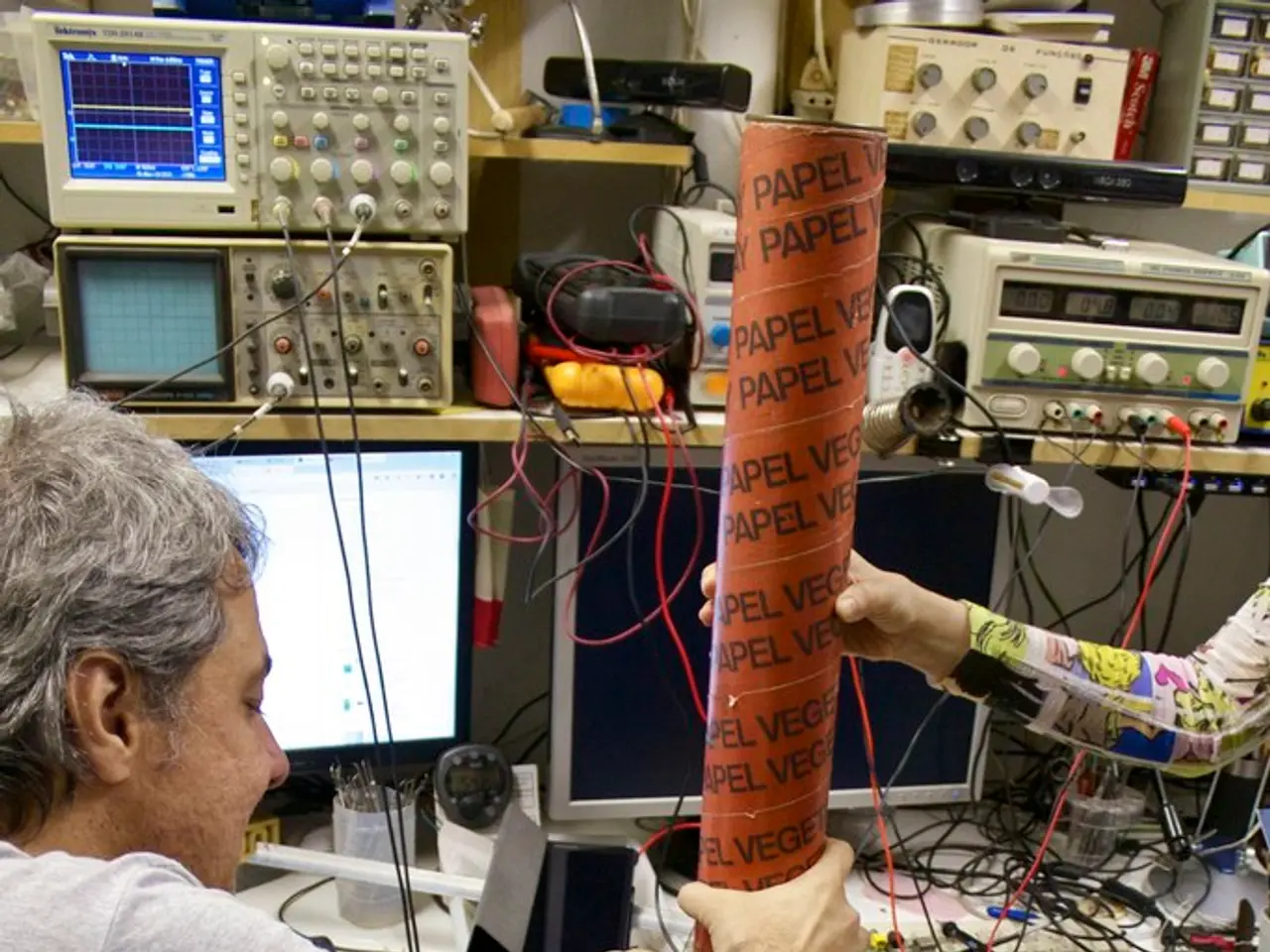Overworked minds hinder cognitive abilities, claim scientists persistently
In today's fast-paced world, constant busyness has become a norm. However, research suggests that this relentless pace negatively impacts cognitive abilities and mental health.
Constant Busyness: A Cognitive and Mental Health Threat
Chronic busyness causes stress and multitasking that drain cognitive resources, impair memory, reduce focus, and induce mental fatigue. This persistent stress can lead to structural brain changes, such as hippocampal shrinkage and reduced prefrontal cortex function, critical areas for memory, learning, planning, and decision-making [1][2]. Elevated cortisol from stress also inhibits neurogenesis, the creation of new neurons, further diminishing cognitive resilience [1]. Additionally, chronic stress contributes to anxiety and depression, worsening overall mental health [5].
Strategies for Counteracting Busyness's Effects
To mitigate these detrimental effects, several strategies can be employed.
- Improving Sleep Quality: Aim for 7–9 hours of sleep nightly with good sleep hygiene, such as consistent sleep schedules and minimizing screen use before bed, to maximize brain restoration and reduce mental exhaustion [2][4].
- Prioritizing Nutrition: Eating a balanced diet rich in omega-3 fatty acids, fruits, vegetables, and whole grains supports brain health and focus. Foods like dark leafy greens, salmon, walnuts, and berries reduce brain fog and support cognitive function [2][4].
- Incorporating Regular Physical Activity: Exercise increases brain blood flow, boosts mood, facilitates better sleep, and enhances concentration [2].
- Reducing Multitasking and Allowing Mental Downtime: Limiting constant task-switching helps preserve cognitive resources and lets the brain reset, reflect, and generate new ideas [1][3].
- Organizing Your Environment: Decluttering work and living spaces reduces anxiety, aids concentration, and improves the sense of control, supporting overall mental well-being [4].
The Power of Rest and Idleness
The brain operates in two primary modes: the task-positive network (engaged during focused work) and the default mode network (active during rest and idle moments). The default mode network is responsible for critical functions such as memory consolidation, creative problem-solving, and emotional regulation. Neuroscientist Daniel Levitin suggests that embracing idleness, through activities like meditating or daydreaming, can help reset the brain [6].
The Role of Technology and Innovation
The modern digital economy actively competes to capture and hold one's attention, using psychological principles to create addictive apps and platforms. However, it's crucial to remember that the brain has incredible capacity for insight, innovation, and joy, but only when given the space and rest it needs to function at its best. Some of the world's most groundbreaking innovations came to people when they weren't trying to innovate at all. Innovation doesn't happen when we're frantically busy and stressed. It emerges from a relaxed, open state of mind that allows seemingly unrelated ideas to connect in new ways [7].
Building Meaningful Relationships
Real relationships are built in the quiet moments—the unhurried conversations, the spontaneous laughter, the comfortable silences. These moments can't be scheduled or rushed [8]. By incorporating regular moments of rest into one's routine, one can protect one's brain, boost creativity, and live a more fulfilling life. The choice to prioritize well-being over the endless demands of a busy culture can lead to a calmer, clearer, more creative, and more fulfilled future self.
- Employing technology responsibly can contribute to a healthy and balanced lifestyle, as certain apps and devices can offer tools to manage stress, track sleep quality, and promote mental health and well-being as part of a holistic health-and-wellness strategy.
- Incorporating mindfulness practices using smartphones, such as guided meditation or controlled breathing exercises, can help reduce mental stress and enable mental-health management techniques, promoting a healthier workplace-wellness culture.
- Encouraging the development of tech innovations that prioritize mental health and well-being, such as productivity-enhancing tools or apps that promote relaxation and stress reduction, could help protect cognition and overall mental health in our fast-paced society.




